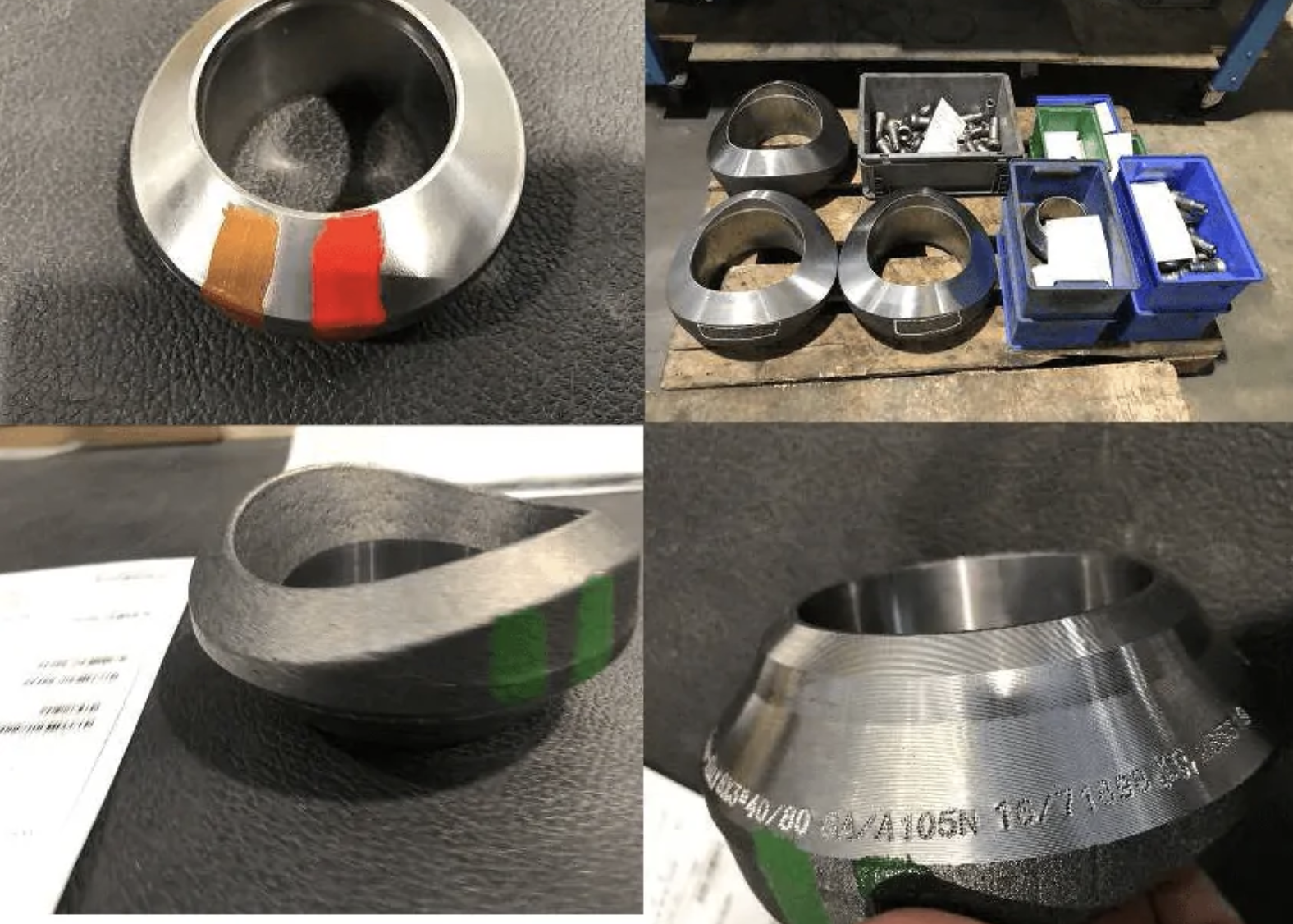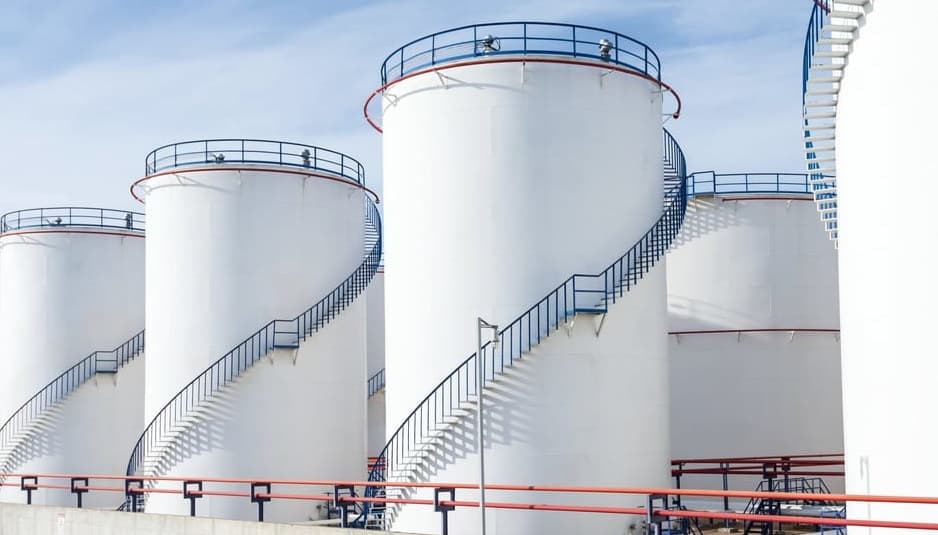Today we had the privilege to hear from Randy Camardelle to learn about the new Colorado bill that the state enacted in 2019. It is called SB–181 and has a few new rules that will be impacting the oil and gas industry in Colorado. Specifically rule 605 and rule 905.
What You Need To Know About Colorado SB-181
Matthew:
Hi Randy, thank you for taking the time to meet with me and answer a few questions about Colorado’s new bill SB-181. To start off, can you tell me a little bit about what’s going on in Colorado. I’m hearing about the new changes, rules and regulations.. What’s really happening?
Randy:
Absolutely, I’m always happy to help clarify these things. So in Colorado, back in 2019, the state enacted a bill called SB 181 that affects all oil and gas operators within the state. It basically establishes a new set of rules, and minimums, that the oil and gas industry is going to have to follow from this point moving forward. The bill went into effect this year, 2021, in January and is currently in effect. Operators are going to have to come into compliance with these new regulations within a given amount of time.
As of now, there’s no details on how long they have, but we know that it’s something that’s on everyone’s radar right now, and everyone’s talking about it. It’s something that is moving very quickly.
Matthew:
I see, so what’s happening now?
Randy:
Essentially what the state did was they wrote this bill and they repurposed an association there. The Colorado Oil and Gas Conservation Commission, also known as the COGCC. Previously they were responsible for fostering the responsible and balanced development of the production of oil and gas in the state. This bill, repurposes this organization so that they are more of a regulator within the state. Changing thee word fostering to regulating. They also restructured the board of professionals in the organization so that it included environmental roles, because the purpose of this bill is to increase in the environmental awareness and increase the environmental responsibility of operators within the state.
The board is now more focused on these conservation activities. So how it applies to us is, specifically inside of the builder’s rule, the 600 series, and specifically rule 609, which stipulates that the oil and gas operators are going to have to have all of their equipment inspected according to the rules inside of American Petroleum Institute, API codes and standards. Which requires their equipment, their fixed assets, to be inspected on regular intervals.
We’ve been getting a lot of phone calls about this, a lot of requests from operators that are developing their new programs. So this is new to a lot of folks there, and there’s a lot of gray area for them, and they’re still trying to figure out how to do it.
Matthew:
Can you tell me a little bit about what’s different? What new things are they having to do, where are they going to need help that’s different from the past?
Randy:
Well, previously there weren’t any requirements on inspections. A lot of the operators, they ran their equipment and they repaired their equipment whenever it was needed. So it’s switching them from a reactive approach, to a proactive approach, when it comes to integrity. The environmental impact of is that there’s going to be less toxic releases, less leaks, spills, things of that nature.
So by inspecting the equipment on regular intervals, you’re going to catch problems before they become troublesome for the company, the environment, state, and local governments. So in rule 609 it specifically drives operators towards API 653, code for above ground storage tanks, API 510, which is the in-service inspection code for boilers and pressure vessels, API 570, which is the code for process piping under pressure. And also, there are other codes too that are applicable. The Steel Tank Institute has a standard, the SP001 standard, which covers above ground storage tanks that aren’t in the scope of API 653. So it’s your smaller shop and field built storage tanks that you find out in the terminals, the oil and gas terminals throughout the state.
Challenges That Oil & Gas Companies Face With SB-181
Matthew:
I was going to say, there’s always two sides of the story. From what you said, it sounds like this is a good thing because it’s helping protect the environment. It’s proactive, catching things before they become a big issue. Can you tell me a little about the other side, what are some of the challenges that the SB-181 brings to these oil and gas companies, and how are you going to help solve them?
Randy:
That’ s a good point. The other side of the coin is the cost of the compliance. So previously, they didn’t have to have a budget for this, or they didn’t have to have much of a budget for it. But, so the way we can help our clients in Colorado is come up with a common sense plan for implementing their mechanical integrity program. There’s smart ways of doing things and there’s not so smart ways of doing things, and we can help companies be a little bit more efficient in the rollout.
Some of these operators, they have tens of thousands of individual pieces of equipment that they’re going to have to inspect over a given amount of time. So it’s an elephant, right? So the old saying, you’ve got to figure out how to eat the elephant one bite at a time. And so what we can do is help figure out where to stop [inaudible 00:06:19] they’re high risk equipment and start from there to take a risk based approach. Or you could just take other approaches, time-based inspection approaches, where you just segment your equipment out and inspect it over given periods of time that fits in with the client’s budgets.
There’s lots of different ways that you can go about it. And being a flexible provider of inspection and engineering services, it could go a long way with the client, helping them figure this out and doing it in the most cost effective way.
Matthew:
I see. If I’m understanding correctly, it sounds like what you’re saying, when it comes to the new changes for Colorado tank inspections and really anything oil and gas, you and your company, are taking a more intelligent and strategic approach to helping them implement a course of action to accomplish everything that they’re needing to do with these new rules, right?
Randy:
Yeah. That’s the goal, right? So being that there is a couple of different ways, we found that a lot of our clients are really interested in the risk-based inspection approach simply because it gives them an idea of where their dollars need to go first. So it covers the consequences of a failure, and it also covers the probability or the likelihood of a failure.
The way I like to describe what risk-based inspection is, it’s inspection, it’s mechanical integrity, but you inject a little bit of common sense into it. So if you know that you’ve got a group of equipment that may have a higher likelihood of failure and it’s got a little bit higher of a consequence of failure because it’s a more toxic substance or something of that nature, then it makes sense to utilize your budget dollars first to inspect those equipment, to make sure that they don’t cost the company more money in the long run because we ignored it and took a more broader approach, less data science backed approach.
So with the risk-based inspection, you focus your dollars on those high risk equipment, knock those out first, and then you move on to the next category.
Matthew:
That makes a lot of sense. It sounds like you guys have put a lot of thought into this and have a great plan to move forward. If you had some quick advice to give these Colorado oil and gas companies, what would you tell them about the new SB 181 regulations?
Randy:
I would encourage them to read up on the different approaches, educate yourself on what risk-based inspection is, what that might look like. Research what a time-based inspection is, what are the requirements of API 510, 570, 653, and figure out what the best approach is for your company.
We can help you figure that out, obviously, but I think education and being aware of the different options out there is probably the best first step. So calling a company, getting involved, getting plugged into someone who’s experienced, and the implementation of these types of programs will probably help you out a lot. There’s a lot of things that they could do to help you get the program up and running. It can take a lot of the workload off of your hands, and in a lot of cases, do it for you. It depends on how involved the company may want to be in the process. Some folks like to have a third party come in and design, develop, and deploy the program as a turnkey solution. That’s great. We can do that. Some people like to be more involved and they like to come up with their own plan and then find a company that can help them come in and implement it. So we can do that as well. But a great first step is just to read up and become educated on the options.
Matthew:
Great, I’ll tell you what we’ll do. We’re going to list a bunch of links down below that link to these resources and help people to learn about these changes. Some people like to do that before reaching out, and that way they can talk to you intelligently and know what questions to ask. Randy, do you have anything else you want to add?
Randy:
I think it’s best to reach out to us. It doesn’t cost anything to give us a call and have a conversation. We’re a very open and transparent company. We love to help and we have a servant’s attitude for our company, towards our services, and the clients that we serve. So reach out, send us an email or give us a call, and let’s talk about it.
Matthew:
Thanks Randy, it’s always a pleasure!
Helpful Resources & Links Regarding SB-181
SB-181 Summary 4-25-19
SB-181 Final
2 CCR 404-1
https://www.bizjournals.com/denver/news/2020/08/24/colorado-cogcc-oil-and-gas-sb-181-hearings.html
https://www.kunc.org/oil-and-gas/2019-03-29/curious-colorado-what-senate-bill-181-does-and-doesnt-do
https://www.coga.org/sb181.html (Commission tasked with regulating the industry in Colorado)
https://www.coga.org/uploads/1/2/2/4/122414962/sb_181_summary_4-25-19_final.pdf
https://www.api.org/news-policy-and-issues/news/2019/04/16/cpc-responds-to-sb181-signed-into-law



